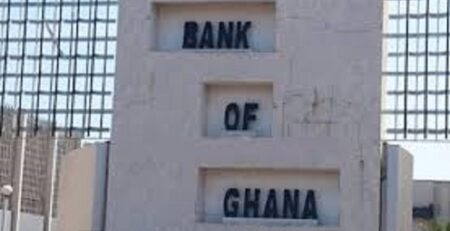BoG spent ¢337.5m in printing cedi notes in 2020
The Bank of Ghana spent ¢337.5 million last year in printing currency notes, its 2020 Annual Report has revealed.
This is compared with ¢306.2 million the previous year.
According to the report, the Central Bank also spent ¢7.9 million in 2020 on other currency management operations, as against ¢3.9 million in 2019.
This put the total currency issue expense in 2020 at ¢347.8 million.
Overall, ¢23.3 billion were in circulation in 2020, as against about ¢16.2 billion in 2019.
With regard to deposits in various currencies, ¢17.5 billion cedis were cedi denominated, ¢4.5 billion in dollars, ¢320 million in pounds and ¢693.1 million in euros. Other currencies were estimated at ¢13.9 million.
In terms of the notes in circulation, ¢4.32 billion of the ¢200 note was in circulation in 2020. This is compared with ¢276.7 million the previous year.
For the ¢100 note, ¢3.39 billion were in circulation in 2020, as against ¢149 million in 2019.
The ¢50, ¢20 and ¢10 notes in circulation in 2020 were ¢5.7 billion, ¢5.4 billion and ¢2.9 billion respectively. This is against ¢5.9 billion, ¢5.08 billion and ¢2.8 billion respectively in 2019.
On the other hand, ¢1.04 billion, ¢88.9 million and ¢179 million of the ¢5, ¢2 and ¢1 notes were in circulation in 2020.
For the coins, ¢19.8 million of the ¢2 was in circulation in 2020, as against ¢31.7 million of the ¢1.
With regard to the 50 pesewa, 20 pesewa and 10 pesewa coins, ¢89.2 million, ¢91.8 million and ¢43.1 million were in circulation last year.
Currency Management
The Bank of Ghana opened two new agencies at GCB Bank branches at Ho and Bolgatanga, in August and September 2020, respectively. This increased the Central Bank’s agencies to nine nationwide.
Currency Airlifting
In order to modernise currency operations and make cash movement more secure and efficient, the Central Bank, in collaboration with the Ghana Air Force (GAF), undertook a successful pilot airlifting of currency in December 2020.
The two parties agreed to work on the requisite Standard Operating Procedures (SOP) and Memorandum of Understanding (MoU), as well as the necessary logistics for regular currency airlifting operations.
Central Bank Digital Currency
In 2020, the Central Bank also initiated the process to select a credible partner for a pilot Central Bank Digital Currency (CBDC). The CBDC is to further enhance the payment ecosystem in the country.
Source: Myjoyonline














Leave a Reply